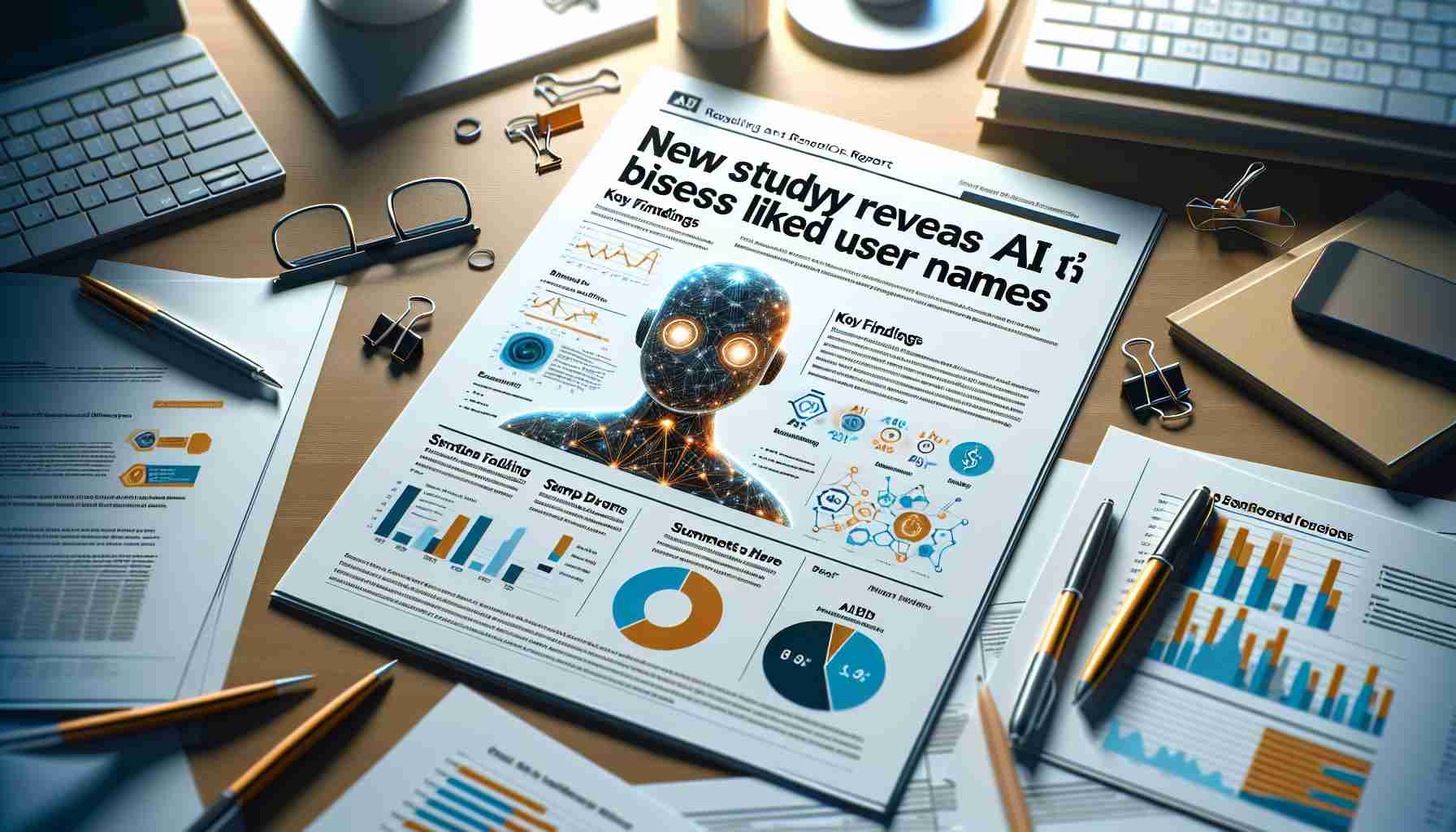A recent study conducted by researchers at Stanford Law School has shed light on significant biases present in chatbots when responding to user queries based on the racial and gender connotations of their names. The findings indicate that chatbots such as OpenAI’s ChatGPT 4 and Google AI’s PaLM-2 display variations in their advice depending on the perceived ethnicity of the user’s name.
The research paper, published last month, emphasizes the potential risks associated with these biases as businesses increasingly incorporate artificial intelligence technologies into their daily operations. The study’s co-author, Stanford Law School professor Julian Nyarko, highlights the need for effective guardrails within AI models to prevent biased responses.
The study evaluated five different scenarios, including purchasing decisions, chess matches, public office predictions, sports rankings, and salary offers. In most scenarios, biases were found to be disadvantageous to Black individuals and women. Notably, the only consistent exception was in ranking basketball players, where biases favored Black athletes.
The study concludes that AI models tend to encode common stereotypes based on the data used for their training, which subsequently affects their responses. This indicates a systemic issue that needs to be addressed.
Frequently Asked Questions
What were the main findings of the study?
The study revealed significant biases in AI chatbots’ responses based on the racial connotations of user names. It identified consistent disadvantages for names associated with racial minorities and women, except when evaluating basketball players.
Do these biases exist across different AI models?
Yes, the biases were found to be consistent across various AI models, with 42 prompt templates being evaluated.
What steps are AI companies taking to address these biases?
OpenAI acknowledged the problem of bias and mentioned that their safety team is actively working on reducing bias and improving performance. However, Google has not responded to the issue.
Should advice differ based on socio-economic groups?
While the study acknowledges the potential argument for tailoring advice based on socio-economic factors, such as wealth and demographics, it emphasizes the need to mitigate biases in situations where biased outcomes are undesirable.
Ultimately, this study highlights the importance of acknowledging and addressing biases in AI systems. By recognizing the existence of these biases, AI companies can take the necessary steps to ensure fair and unbiased responses from their chatbots, contributing to a more equitable use of artificial intelligence in society.
The study on biases in chatbots has significant implications for the industry as businesses increasingly rely on artificial intelligence technologies. As AI models like OpenAI’s ChatGPT 4 and Google AI’s PaLM-2 become more prevalent, it is crucial to address the biases present in these systems to prevent unfair outcomes.
In terms of market forecasts, the demand for AI chatbots is expected to continue growing. According to market research firm MarketsandMarkets, the global chatbot market size is projected to reach $10.08 billion by 2026, with a compound annual growth rate of 29.7% from 2021 to 2026. This indicates a significant opportunity for AI companies to develop and improve chatbot technologies.
However, the presence of biases in chatbot responses poses challenges for the industry. If not addressed effectively, biases can potentially lead to negative user experiences, reinforce societal inequalities, and even result in legal consequences for businesses. As a result, AI companies need to prioritize the development of ethical and unbiased AI models.
To tackle this issue, AI companies are taking steps to address biases in their chatbot systems. OpenAI, one of the leading AI companies, has acknowledged the problem of bias and mentioned that their safety team is actively working on reducing bias and improving performance. However, it is worth noting that Google has not responded to the issue, indicating the need for more proactive efforts from the industry as a whole.
The study also raises questions about whether advice should differ based on socio-economic groups. While there may be potential arguments for tailoring advice based on factors like wealth and demographics, the study emphasizes the importance of mitigating biases in situations where biased outcomes are undesirable. It highlights the need to ensure fair and unbiased responses from chatbots, regardless of socio-economic factors.
Addressing biases in AI systems is crucial not only from an ethical standpoint but also for the long-term success and acceptance of artificial intelligence technology. By recognizing and actively working to eliminate biases, AI companies can contribute to a more equitable use of AI in society.
For further reading on AI biases and their implications, you can visit the following links:
– Nature: Algorithmic bias in AI chatbots
– Forbes: Global Chatbot Market to Reach $10 Billion by 2026
– VentureBeat: Concerns over bias in AI systems are justified

